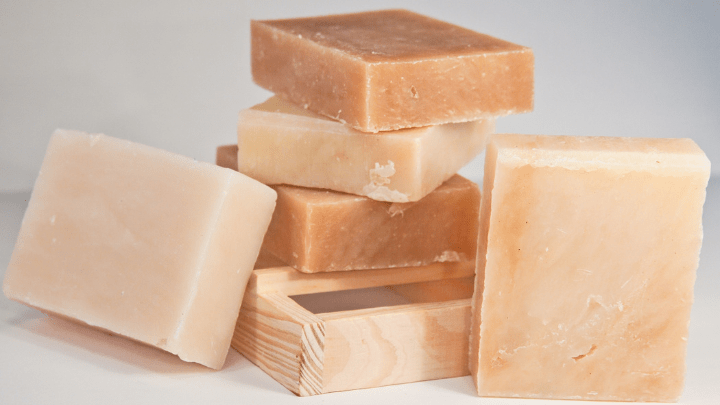In an era where mass-produced items are the norm, handmade goods stand out for their uniqueness, quality, and the skill involved in their creation. From intricately woven textiles to beautifully crafted jewellery, these items carry a personal touch that resonates with consumers seeking authenticity and individuality.
The Irish Market for Handmade Goods
Ireland offers a thriving market for handcrafted goods thanks to its long tradition in the arts and crafts. Ireland is an excellent location for selling handmade goods online because of its admiration for craftsmanship and the rising trend of patronising local companies.
Why Sell Handmade Goods Online?
The Appeal of Handmade Goods

Handmade goods have a unique appeal. They are not just products; they are stories – of the artisan’s skill, the materials used, and the cultural or personal significance embedded in each item. This narrative, inherent in handmade goods, is a powerful selling point.
The Benefits of Selling Online
Selling online offers numerous advantages. It allows you to reach a wider audience, operate on a flexible schedule, and reduce overhead costs associated with physical stores. Moreover, with the rise of e-commerce platforms tailored for handmade goods, setting up an online store has never been easier.
How to Start Selling Handmade Goods Online in Ireland
Identifying Your Unique Product
The first step is to identify what you will sell. This could be something you’re passionate about, a craft you’ve mastered, or a product you believe has a market demand. The key is to offer something unique that sets you apart from the competition.
Setting Up Your Online Store

Once you have your product, setting up your online store is next. This involves choosing a platform, creating a compelling product listing, setting up payment and shipping options, and ensuring your store is SEO-optimized to attract organic traffic.
Marketing Your Products
Marketing is crucial in the online space. This could involve social media marketing, email campaigns, content marketing, or even influencer collaborations. The goal is to increase visibility and attract potential customers to your store.
Setting Up Your Own Website to Sell Handmade Goods
Setting up your online store to sell handmade goods can seem daunting, but it can be a straightforward process with the right steps. Here’s a step-by-step guide to help you get started:
Define Your Brand
Your company name and logo are only a small part of your brand. It distinguishes you from your rivals and conveys to customers the character and values of your company. Consider what makes your handmade products special and how you want to market them.
Build Your Website
Building your website is a crucial step in setting up your online store. You can build your website from scratch with the technical skills or use a website builder like Wix, Squarespace, or WordPress, which offers user-friendly interfaces and customisable templates.
Your website should be visually appealing, easy to navigate, and reflect your brand’s identity. It should also be mobile-friendly, as many online shoppers use their mobile devices for shopping.
Set Up Your E-commerce Platform
Once your website is ready, setting up your e-commerce platform is next. This is where you’ll list your products, manage your inventory, handle payments, and process orders.
Shopify is popular for many online sellers due to its ease of use, scalability, and comprehensive features. Other options include BigCommerce, WooCommerce (for WordPress sites), and Magento.
When setting up your e-commerce platform, provide detailed product descriptions, high-quality photos, and transparent pricing and shipping information. Also, set up secure payment options to ensure your customers a safe and seamless shopping experience.
Optimise Your Store for SEO
The visibility of your online store on search engines like Google must be improved through search engine optimisation (SEO). This entails optimising your website’s loading speed, making it mobile-friendly, and adding pertinent keywords in your product descriptions and website content.
Market Your Store
After you’ve set up your online store, you need to draw customers in. Various marketing techniques, such as social media, email, content marketing, and paid advertising, may be used in this. Additionally, consider partnering with bloggers or influencers in your niche to reach a larger audience.
Keep in mind that creating your online business is only the first step. You must regularly improve your store based on client feedback, keep up with the most recent e-commerce trends, and modify your strategy as your business expands to sell handcrafted goods online successfully.
Platforms for Selling Handmade Goods Online in Ireland
Etsy
Etsy is a global online marketplace for unique and creative goods, including handmade items. It’s user-friendly, has a large customer base, and offers various tools to help sellers succeed.
Amazon Handmade
Amazon Handmade is a store within the larger Amazon marketplace for artisans to sell their unique, handcrafted goods. With Amazon’s extensive reach, it can be an excellent platform for reaching a broad audience.
Facebook Marketplace
Facebook Marketplace is a convenient platform for individuals and businesses to buy and sell items locally or shipped. Its integration with Facebook’s social features can be a great way to leverage your social network to drive sales.
Tips for Success in Selling Handmade Goods Online
Quality Over Quantity
Quality is more important than quantity when it comes to handmade goods. Make certain that every item you sell adheres to high standards. Customers will be satisfied, and your brand’s reputation will improve.
Excellent Customer Service

Excellent customer service can help you stand out from other businesses. This entails answering questions from clients quickly, resolving problems successfully, and going above and beyond to satisfy their needs.
Effective Marketing Strategies
Implementing effective marketing strategies is key to driving traffic to your online store. This could involve SEO, social media marketing, content marketing, or paid advertising. Stay updated with digital marketing trends and optimise your strategies based on what works best for your business.
Types of Handmade Products to Sell Online
Handmade products come in a wide variety, each with its unique appeal. Here are some types of handmade goods that you can consider selling online:
- Handmade Jewellery: Handmade jewellery is always in demand, from intricate necklaces to unique earrings. You can use various materials, including precious metals, beads, gemstones, and even recycled materials.
- Handcrafted Textiles: This can include handmade clothing, scarves, blankets, or home decor items. Techniques can range from knitting and crochet to embroidery and quilting.
- Ceramics and Pottery: Handmade ceramics and pottery items such as mugs, plates, bowls, and vases are popular for their rustic charm and uniqueness.
- Art and Prints: If you’re an artist, selling your artwork or prints online can be a great way to reach a larger audience. This can include paintings, illustrations, digital art, and photography.
- Handmade Soaps and Candles: These items are popular for their natural ingredients and the personal touch that goes into making them. They also make great gifts.
- Woodworking: Handmade wooden items such as furniture, decor, or kitchen utensils are appreciated for their craftsmanship and durability.
Remember, the key to successfully selling handmade goods online is to offer something unique that sets you apart from the competition and ensure that every item you sell is of high quality.
Conclusion
Selling handmade goods online in Ireland can be a rewarding venture. It allows you to share your craft with a broader audience, contribute to the local economy, and earn income doing what you love. With the right product, an effective online store, and a solid marketing strategy, you can carve out a successful niche in the online marketplace for handmade goods.
FAQs
Effective marketing strategies for selling handmade goods online include search engine optimisation (SEO) to increase your store’s visibility on search engines, social media marketing to engage with customers and build a community, content marketing to provide valuable information and attract organic traffic, and email marketing to keep your customers updated with the latest products and offers.
Selling handmade goods online offers numerous benefits. It allows you to reach a wider audience beyond your local area, operate flexibly, and reduce overhead costs associated with running a physical store.
Ensuring the quality of your handmade products involves careful sourcing of materials, meticulous crafting processes, and thorough quality checks. Maintaining high standards in every aspect of your product creation is essential, from the initial design to the final packaging.
Providing excellent customer service in your online store can involve:
– Responding promptly and professionally to customer inquiries.
– Resolving issues effectively.
– Offering easy and convenient shopping experiences.
– Going the extra mile to meet and exceed customer expectations.
